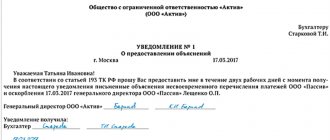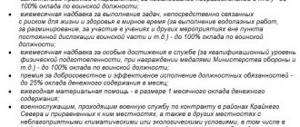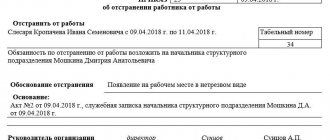Article 27.3 of the Code of Administrative Offenses of the Russian Federation defines administrative detention as a temporary restriction of a citizen’s freedom, used either to ensure proper consideration of a case regarding a committed offense, or in pursuance of a decision on a case that has already been considered. Although such a measure entails less severe consequences than criminal detention, the requirements for compliance with the procedure are quite stringent.
Administrative detention by court decision.
Grounds for administrative detention
Existing grounds for administrative detention.
Administrative detention is a restriction of a citizen’s rights to personal freedom and freedom of movement enshrined in the Constitution of the Russian Federation.
Therefore, this measure is applied in certain cases:
- in order to prevent a possible crime;
- to be able to consider the case within the prescribed period;
- to draw up an administrative protocol;
- for the purpose of executing a court decision.
According to the law, it is impossible to detain a citizen who has committed an offense if the punishment for the act is a fine or a verbal warning. A police officer may restrict a citizen’s freedom to draw up a report if this cannot be done at the scene of the offense.
Grounds for detention
Grounds for administrative detention (Part 1 of Article 27.1 of the Administrative Code):
- Suppression of crime.
- The need to establish identity if this cannot be done locally.
- The need to draw up a protocol if it cannot be drawn up on site.
- Ensuring correct and timely consideration of the case.
- Ensuring the execution of a decision in a case of an offense.
When applying the grounds, based on the wording of Part 1 of Art. 27.3 of the Administrative Code, the following should be taken into account:
- Administrative detention cannot be applied if there is a reason specified in paragraphs. 1-3, but there is no reason specified in paragraphs 4-5;
- Detention can be applied if there is only the basis specified in paragraphs. 4-5, but there are no other reasons.
There is an opinion that it is impossible to detain if the sanction of the article of administrative offense does not provide for arrest. This is wrong. This circumstance affects only the period of administrative detention, increasing it to 48 hours.
Who has the right to detain?
The official who has the right to carry out administrative detention is determined by the nature of the offense committed. For example, if a citizen is convicted of petty hooliganism or appears in a public place while intoxicated, a police officer must detain the offender.
If the theft of property from a departmental warehouse has been established, the arrest is carried out by the head of a special security detachment or national guard unit. The law allows to detain a citizen who has entered a protected area without the necessary rights and powers.
Among the most common administrative offenses are illegal crossing of the border of the Russian Federation and violation of customs procedures. In the first case, the detention is carried out by border service officials, and in the second - by customs officials.
A special situation is administrative arrest for violating court order. By exercising control over the execution of the judge's order, bailiffs have the right to detain the convicted person. This happens in relation to those persons who evade execution of the decision or interfere with the necessary procedures.
The law does not establish a strict correspondence between officials of a particular department and the area of offenses where they can apply administrative arrest. There are references to other regulations, in particular, to the order of the Ministry of Internal Affairs “On the powers of officials of the Russian Ministry of Internal Affairs system to draw up protocols and administrative detention.”
Duration of administrative detention
Table of terms of administrative detention.
A citizen can be imprisoned for a period of 3 to 48 hours. The upper limit cannot be exceeded. Detaining a person for such a long time is used for particularly serious offenses. These include, for example, violation of the state border or the regime of stay in the Russian Federation. Representatives of the relevant authorities can detain citizens for breaking the law in special areas of the country, for example, in inland waters or on the continental shelf.
Persons against whom a protocol on an administrative offense has been drawn up may also be deprived of their freedom for 2 days. Detention is carried out if the judge has made a decision providing for imprisonment as a punishment.
Among the controversial issues of legislation is the problem of determining the way out of drug or alcohol intoxication. According to the law, the period of detention begins from the moment of sobering up, but the criteria for such a state and methods of determination are not specified. In practice, police officers wait 6 hours until the detainee is able to adequately perceive what is happening. But the procedure for applying this principle is not regulated in any way, which raises doubts about its legality.
Administrative detention: grounds, procedure for application.
Administrative detention is a short-term restriction of freedom of an individual , which can be applied in exceptional cases, if this is necessary to ensure the correct and timely consideration of a case of an administrative offense, the execution of a decision in a case of an administrative offense (Article 27.1 of the Code of Administrative Offenses).
The Constitution of the Russian Federation , having proclaimed and secured the fundamental rights and freedoms of citizens, pays great attention to guarantees of personal integrity ( Article 22 ). In the Russian Federation, no one can be detained, except in cases expressly provided for by law.
Administrative detention is used to suppress an administrative offense, establish the identity of the offender, draw up a protocol on an administrative offense if it is impossible to draw it up at the place where the administrative offense was detected, ensure timely and correct consideration of the case of an administrative offense and the execution of the decision adopted in the case as a procedural compulsory measure to ensure proceedings. in cases of administrative offenses. The procedural nature of the rule on administrative detention is confirmed by the provisions of Part 4 of Art. 27.5 of the Administrative Code states that the period of administrative detention of a person is calculated from the moment of his delivery, and of a person in a state of intoxication - from the time of his sobering up.
Administrative detention is not allowed if it is possible at the scene of the offense to establish the identity of the offender and the circumstances of the incident, to draw up a protocol on the administrative offense, and also if there is a basis for imposing an administrative penalty in the form of a warning or a fine at the place where the administrative offense was committed.
Foreign citizens who have committed an offense and enjoy diplomatic immunity and who have presented a diplomatic passport, diplomatic or consular card or official identification card in support of this are not subject to administrative detention.
As a rule, military personnel are not subject to administrative detention. However, in the absence of military patrols, military personnel may be detained for immediate transfer of them and materials about offenses to military commandants, commanders of military units or military commissars.
Due to their legal status, the following are not subject to administrative detention:
- members of the Federation Council and deputies of the State Duma (Article 19 of the Federal Law of 05/08/1994 No. 3-FZ “On the status of a member of the Federation Council and the status of a deputy of the State Duma of the Federal Assembly of the Russian Federation”);
- deputies of the legislative (representative) body of state power of a constituent entity of the Russian Federation, whose immunity, however, does not extend to the actions of a deputy not related to the exercise of his powers (Article 13 of the Federal Law of October 6, 1999 No. 184-FZ “On the general principles of the organization of legislative ( representative) and executive bodies of state power of the constituent entities of the Russian Federation");
- without the consent of the prosecutor of a constituent entity of the Russian Federation - deputies, members of elected local government bodies, elected officials of local government on the territory of a municipal entity (Article 18 of the Federal Law of October 6, 2003 No. 131-FZ “On the General Principles of the Organization of Local Self-Government in the Russian Federation”) and certain other categories of citizens of the Russian Federation in cases directly provided for by federal laws.
Foreign citizens who do not enjoy diplomatic immunity, stateless persons, if they commit an offense, may be subject to administrative detention on a general basis.
At the request of the detained person, relatives, the administration at the place of work (study), as well as the defense lawyer are notified of his whereabouts as soon as possible. legal representatives are required to be notified .
The military commandant's office or military unit in which the detainee is undergoing military service (military training) is immediately notified of the administrative detention of a serviceman or citizen called up for military training, and the secretary is immediately notified of the administrative detention of a member of a public monitoring commission formed in accordance with the legislation of the Russian Federation. Public Chamber of the Russian Federation and the corresponding public monitoring commission.
The detained person is explained his rights and obligations under the Administrative Code. about which a corresponding entry is made in the protocol on administrative detention, which indicates the date and place of its preparation, position, surname and initials of the person who compiled the protocol, information about the detained person, time, place and reasons for the detention.
The protocol on administrative detention is signed by the official who compiled it and the detained person. If the detained person refuses to sign the protocol, a corresponding entry is made in the protocol on administrative detention. A copy of the protocol on administrative detention is given to the detained person at his request.
As a general rule, the period of administrative detention should not exceed three hours. Administrative detention for a period of no more than 48 hours may be subjected to a person in respect of whom proceedings are being carried out on a case of an administrative offense encroaching on the established regime of the State Border of the Russian Federation and the procedure for staying on the territory of the Russian Federation, on an administrative offense committed in internal sea waters, in the territorial sea, on the continental shelf, in the exclusive economic zone of the Russian Federation, or about violation of customs rules, if necessary to establish an identity or to clarify the circumstances of an administrative offense. Also, for the specified period, a person against whom proceedings are being conducted for an administrative offense, entailing administrative arrest as one of the administrative penalties, may be detained.
According to the position of the Constitutional Court of the Russian Federation, set out in Resolution No. 9-P of June 16, 2009, administrative detention for a period of no more than 48 hours can be applied only if there are sufficient grounds to consider it necessary and proportionate to ensure proceedings in a specific case of an administrative offense, for the commission of which a penalty in the form of administrative arrest may be imposed, and the subsequent termination of proceedings in a case of an administrative offense due to the absence of an administrative offense event or the absence of an administrative offense cannot serve as a basis for refusing to appeal the illegal use of administrative detention as a compulsory measure to ensure production on this case.
Detainees are kept in specially designated premises or in special institutions created in accordance with the established procedure by executive authorities of the constituent entities of the Russian Federation. These premises must meet sanitary requirements and exclude the possibility of their unauthorized abandonment, and minors must be kept separately from adults. The conditions of detention of detained persons, food standards and the procedure for medical care of such persons are determined by Decree of the Government of the Russian Federation dated October 15, 2003 No. 627 “On approval of the Regulations on the conditions of detention of persons detained for an administrative offense, food standards and the procedure for medical care of such persons.”
In accordance with Art. 22 of the Federal Law of January 17, 1992 No. 2202-1 “On the Prosecutor’s Office of the Russian Federation”, the prosecutor or his deputy, if it is established that the law has been violated by bodies and officials, by his resolution releases persons illegally subjected to administrative detention on the basis of decisions of non-judicial bodies.
Unlawful administrative detention is appealed by an individual in the manner prescribed by Chapter. 25 Civil Procedure Code. Views today: 4,898
Procedure for detention
Formally, violation of order during arrest is grounds for the release of a citizen, so it is important to carefully monitor the actions of a law enforcement officer. The situation is complicated by the fact that there is no procedural unity in the detention. Each department is guided by its own regulations.
However, it is possible to identify mandatory procedural elements that must be observed when applying this measure. Firstly, a law enforcement officer is obliged to introduce himself and explain under what circumstances he is making the arrest . After this, the person is taken to the police. If necessary, a citizen’s personal belongings may be inspected.
Based on the results of the interrogation and search, a protocol is drawn up. The detainee is sent to a pre-trial detention cell, after which he is transferred to the court, where his case is considered. The next stage depends on the decision made by the judge. If it was incriminating, the convicted person may appeal it to a higher authority within ten days from the receipt of a copy of the decision.
Read the administrative detention protocol carefully before signing it.
Drawing up a protocol
The legality of further procedures is based on a correctly drawn up protocol on administrative detention. In many cases, based on the information recorded in this document, the judge makes a decision. Therefore, the information contained therein must be accurate, complete and reliable.
Standard protocol forms have been developed by agencies whose employees may conduct arrests. It is necessary to distinguish between a protocol on administrative detention and a protocol on an administrative offense. The latter records information about the act committed and its circumstances. This information is not duplicated in the arrest report. The policeman indicates the article of the Code of Administrative Offenses, according to which he is detaining the citizen.
The protocol on administrative detention is considered valid if it contains:
- place of document preparation and exact date;
- Full name of the department employee who compiled the document, as well as his position;
- the name of the detainee and his residential address (in some cases, the document records the citizen’s place of work and position based on documentary evidence);
- justification of the motives for limiting the freedom of a citizen;
- time of detention accurate to minutes;
- a note about notification of relatives about the arrest;
- explanations of the detainee about the offense he committed;
- information about the psychological and physical condition of the citizen at the time of arrest;
- the detainee's comments on the contents of the protocol (can certify the correctness of the information included in it or express a protest, as well as indicate witnesses who can be questioned during the trial);
- signatures of the protocol writer and the detainee (voluntary only; coercion to sign a document is not allowed).
In the absence of one of these elements, the judge may declare the fact of detention of a citizen illegal. An exception is a person’s refusal to sign a document. This is noted in the protocol.
The court is especially attentive to indicating the exact time of arrest, since without this information it is impossible to establish the upper limit for the detainee’s stay in the cell. The basis for declaring the protocol invalid may be the failure to report the incident to relatives or a lawyer and explain the reasons for restricting the citizen’s freedom. In these cases, we are talking about a violation of a person’s constitutional right to freedom, and sanctions may be applied to the police officer.
If you are detained, try to remain calm.
Commentary to Art. 27.4 Code of Administrative Offenses
The commented article contains a requirement for the mandatory drawing up of a protocol on administrative detention and indicates what should be contained in it. Among the requirements for the protocol, you should pay attention to the following:
- when indicating the time of detention, it is necessary to indicate not the time of actual restriction of freedom, but the time of delivery of the person to the relevant authority or the time of his sobering up;
— the commented part requires a mandatory indication in the protocol of the motives for the arrest. In practice, instead of motives, protocols often indicate either the grounds for detention (suspicion of committing an administrative offense) or goals (the need to draw up a protocol on an administrative offense, execute a resolution in a case of an administrative offense, etc.). This is incorrect - the motive for detention should explain why the use of this coercive measure in this particular case was necessary. This understanding of the motive, in our opinion, follows from the indication of the exceptional nature of administrative detention (Part 1 of Article 27.3), which should be applied only in cases where there are other ways to ensure the correct and timely consideration of a case of an administrative offense or the execution of a decision in a case of administrative offense is impossible.
Who do not have the right to detain?
Administrative detention cannot be applied to certain categories of persons. First of all, these are the highest officials of the Russian Federation: the president and members of the government. Representatives of legislative bodies (deputies of the State Duma and senators of the Federation Council) and judges at all levels also enjoy immunity.
Measures to restrict freedom cannot be applied to prosecutors and human rights commissioners. Foreigners who hold a diplomatic passport cannot be arrested. However, only the president has complete immunity. This administrative measure can be applied to the remaining listed categories if certain conditions are met.
Firstly, such a person must be caught at the crime scene. Secondly, the authorized body must give written permission to detain. For example, if we are talking about a violation of the law by the ombudsman, then the State Duma can issue the necessary document.
Rights of a detained person
The rights of a citizen detained administratively are determined by the Constitution of the Russian Federation. Since no one can be deprived of liberty arbitrarily, a citizen has the right to demand an explanation from a police officer on the basis of which such a measure is being applied to him. Reporting the number of the article of the code will not be enough: a citizen has the right to know the content of the charge.
A citizen can demand that the police officer report the incident to his relatives and lawyer (if available). The detainee should exercise the legal right to receive a copy of the protocol: law enforcement officers are not required to provide this document unless the citizen himself requests it.
An important right of a citizen is the requirement to conduct a prosecutorial audit. It is stated at the time of arrest orally or in writing. According to the law, the police officer cannot ignore such a request and must immediately inform the prosecutor's office. Since this is not always observed, it is better to play it safe and send a written request.
All actions of the police at the time of arrest and transfer to a pre-trial detention cell can be appealed if there are sufficient grounds. This is especially true in cases where police officers do not provide the detainee with the opportunity to use a telephone. The law does not prohibit the use of mobile communications.








